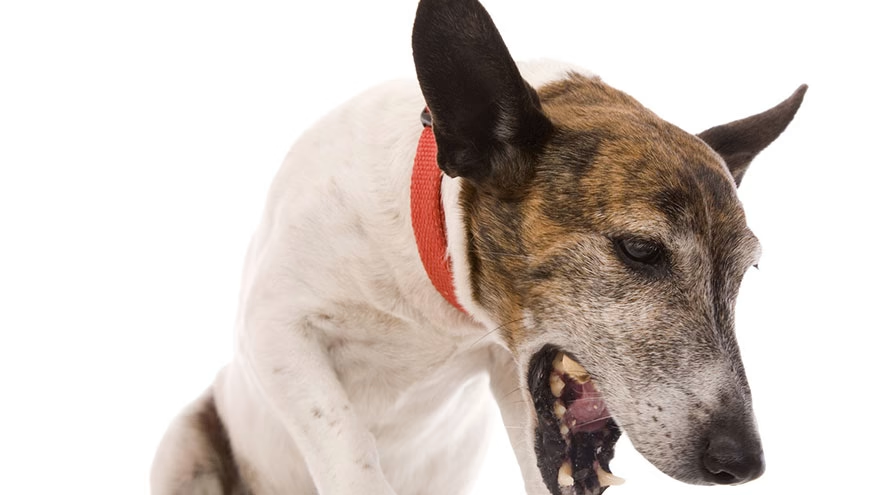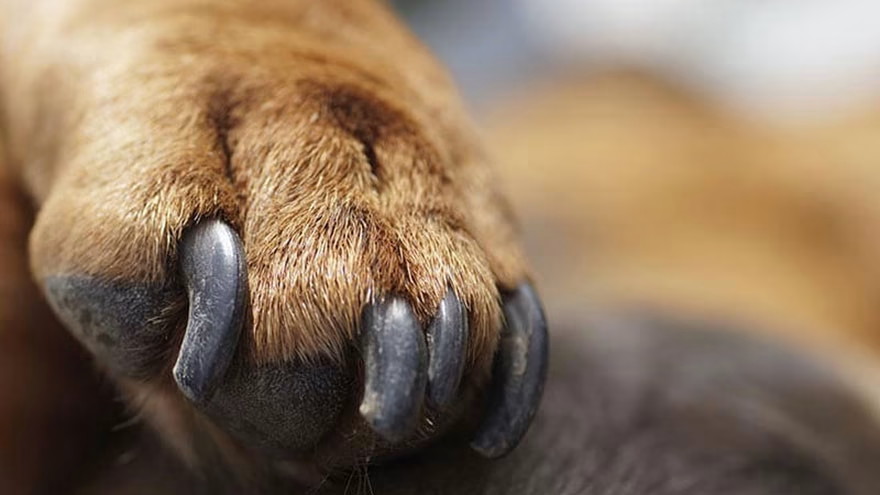The thyroid gland produces hormones that regulate various body functions, including the metabolism. Hypothyroidism is the most common thyroid problem in dogs, though hyperthyroidism may also occur in rare cases. All canine thyroid problems require immediate veterinary care as they can become serious health issues if left untreated.

Alopecia
Alopecia, also known as hair loss, can occur in dogs with thyroid problems. Hair loss will vary from dog to dog, and may be localized or widespread on the affected canine's body. Hair loss and shedding may easily be confused if the owner is unaware of when and how much the dog sheds, though many owners will notice an increase in "shedding," which is actually alopecia.
Anemia
Anemia, which is a low red blood cell count, can occur in dogs suffering from a thyroid gland issue. Signs of anemia include pale gums, weakness, loss of appetite, vomiting and weight loss.
Bowel Movements
Canines suffering from a thyroid gland disorder may have changes in bowel movements, such as constipation or diarrhea. This occurs because the thyroid gland produces hormones that are responsible for the functioning of many organs; therefore loss of these hormones can cause changes in organ function, resulting in abnormal bowel movements.
Exercise Intolerance
Exercise intolerance may occur in dogs suffering from hypothyroidism. Your pet may still be willing to play or exercise, but seems to be unable to keep up with regular daily activities, such as a morning walk or jog.
Fur
Aside from alopecia, other changes in the fur may also occur in dogs affected by a thyroid problem. The dog's fur may become unusually dry or the exact opposite―the fur may become greasier than usual. In addition, some dogs may be shedding more than normal when suffering from a thyroid issue.
Heart Rate
A slower heart rate can occur in dogs suffering from hypothyroidism. A change in heart rate is a clinical sign that would be noticed during an examination by the veterinarian.
High Cholesterol
Dogs with hypothyroidism often suffer from high cholesterol. High cholesterol, like decreased heart rate, is a clinical sign that can only be verified with a blood test at the veterinarian's office.
Hyperkeratosis
Some dogs with a thyroid disorder may develop hyperkeratosis, which appears as thick, unusual scales on the skin.
Hyperpigmentation
The dog's skin may also become darker (hyperpigmentation) which is another symptom of a thyroid issue.
Lethargy
Lethargy is one of the more common symptoms of certain thyroid problems, particularly hypothyroidism. A dog with this condition will no longer have the energy to get up and play, go for a walk or even seek out a favorite toy.
Temperature Intolerance
Temperature intolerance may affect some dogs suffering from a thyroid problem. For example, hypothyroidism can cause the affected dog to become intolerant of colder temperatures and colder weather.
Weight
Changes in weight will occur in a dog with a thyroid problem, even if there is no change in eating habits. Dogs with hypothyroidism will gain weight, whereas dogs with hyperthyroidism will lose weight.You Might Also Like :: Why Do Dogs Throw Up Yellow Stuff?





0 Comments
No comments yet. Be the first to share your thoughts!
Leave a Comment